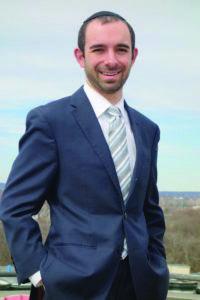 By Zev Eleff
By Zev Eleff
Philadelphia needs new models to educate its Jewish children. The day schools, preschools, camps, synagogue programs and youth groups that my children attend are terrific. Our local educators rank among the very best. The trouble is that not enough Jewish families take advantage of these sites of Jewish education.
In economic terms, we have a pipeline problem.
The 2019 “Community Portrait: A Population Study of Greater Philadelphia” conducted by the Jewish Federation of Greater Philadelphia provides the most recent data on Jewish education in Philadelphia. The report tabulates that 6% of age-eligible Philadelphia Jews attend Jewish day schools, and 11% are enrolled in supplementary Jewish schools. About 7% of age-eligible children participate in Jewish youth groups.
Neither are the typical pipelines to formal Jewish education well used. Just 7% of Philadelphia Jewish families send their young children to Jewish preschools, and only 15% register their children for Jewish camps.
The Jewish communities on the Main Line score somewhat better, mostly because of the higher concentration of Orthodox children enrolled in day schools and camps.
How does all this compare with other American Jewish communities? Including the Philadelphia census, I collected 16 community population studies conducted since 2011. My list included peer communities in Baltimore, Boston, Chicago, Cleveland, Denver, Detroit, Pittsburgh, Miami and Washington, D.C. The Philadelphia enrollment numbers ranked in the bottom quarter (usually last or second-to-last) in each educational setting.
What accounts for this? In 1989, sociologist David Schoem worried that for most American Jews a commitment to supplementary Jewish education represented a “stepping out” of an otherwise typically American daily routine.
But indigenous factors also provide important insight. Children represent just 12% of the Greater Philadelphia Jewish community, which is tied with Palm Beach, Florida, for the lowest tally among population studies I reviewed. The dearth of young people makes it challenging for synagogue schools, camps and youth groups to recruit pupils. These, of course, were the figures before COVID did much to further attenuate the footholds of synagogues and youth movements.
Day schools face an even steeper challenge: Public schools and non-Jewish private schools in Philadelphia’s largest Jewish hubs are very good.
Three-quarters of Greater Philadelphia Jewish families send their children to public schools, and another 10% enroll in non-Jewish private schools. When asked for their rationale, almost a third of parents explained that they simply prefer public schools. This group would, no doubt, be the most difficult to convert to day school families. Only 15% reported they felt day school tuition was too expensive.
These families aren’t just opting out of day school. Most Jewish public school families (two-thirds) do not enroll their children in part-time synagogue schools.
How, then, can our community restore the Jewish education pipeline? Some organizations understand that it pays to leverage public schooling rather than supplement it.
For example, Makom Community’s after-school programs provide meaningful Jewish education for children residing in Center City and South Philadelphia. Makom synergizes Jewish text-based study with an innovative approach to urban education. Just as important, Makom transports students from public schools to its facilities and remains open during public school closures. They’re there for public school families.
Jewish Student Union offers another model. JSU convenes faculty-sponsored student clubs in nine public high schools in the Greater Philadelphia area. JSU’s programs during lunch hour and after school aim to strengthen “Jewish identity and connection to Israel.” JSU is literally “stepping into” the routines of hundreds of Jewish teenagers.
Gratz College offers a final example. Gratz offers dual enrollment courses that fulfill high school requirements and provide an undergraduate-level transcript for students seeking college credit.
In addition, starting this year Gratz will operate the Youth Symposium on the Holocaust and the Mordechai Anielewicz Arts Competition, programs previously managed by the Jewish Community Relations Council.
New models of Jewish education require us to “step into” the daily routines of our children and their families. This ought to inform how we invest in traditional sites of Jewish education. It also says much about the need to cultivate efforts that see the public schools as a promising pipeline in Greater Philadelphia.
Rabbi Dr. Zev Eleff is the president of Gratz College.



